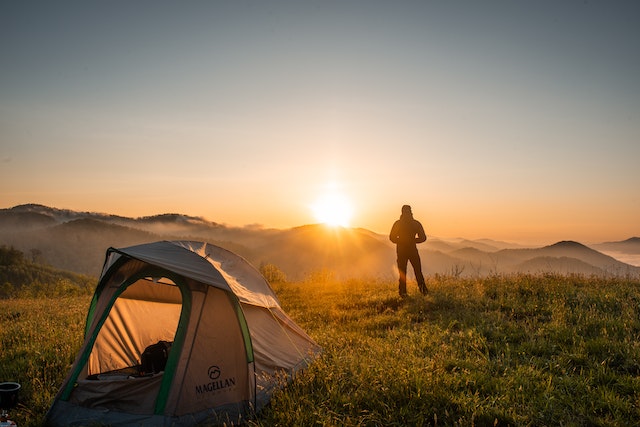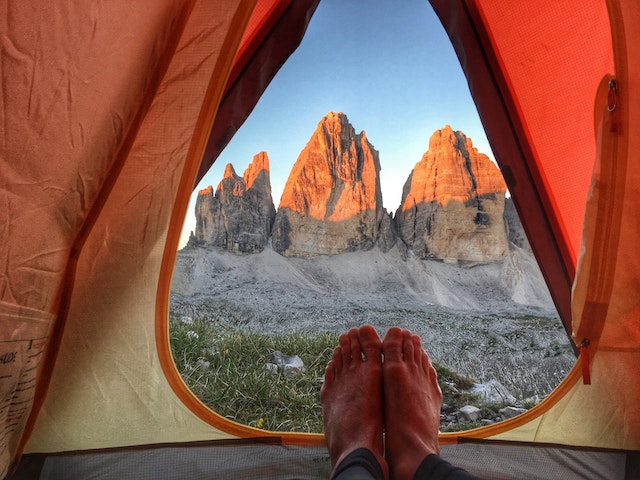Tips for Camping by Yourself in the Wilderness

Camping solo can be a liberating and rewarding experience, but it’s important to be prepared and take some extra precautions to ensure your safety. While camping alone doesn’t necessarily mean that you’re more likely to encounter dangerous situations, it does increase the chances. As such, it’s important to be aware of potential risks and take steps to avoid them. Here are some tips to help you have a successful and enjoyable solo camping trip:
Choose a safe and reputable campsite
When camping solo, it’s important to choose a campsite that’s well-maintained and safe. Look for a campsite that has good reviews and is close to amenities, such as restrooms and water. If you’re camping in an unfamiliar area, research the area before you go and look for recommendations from other campers. Be sure to choose a campsite that’s easy to get to and has plenty of parking space so you can set up your tent without having to worry about traffic.
Pack the essentials
Make a list of the essentials you’ll need for your trip and be sure to pack them all. This should include items such as a tent, sleeping bag, first aid kit, and food. It’s also a good idea to bring a flashlight or headlamp, as well as a knife or multi-tool. If you heavily rely on your gadgets and technology, it may be a good idea to bring a portable power bank and some extra batteries. It may also be well worth investing in a solid charging device like a solar charger with power bank, which can be invaluable for especially remote camping trips.
Know your limits
Camping solo can be a great opportunity to push yourself out of your comfort zone, but it’s important to know your limits and not take unnecessary risks. Be mindful of your physical abilities and choose activities that are appropriate for your skill level. If you’re alone, it can be tempting to push yourself further than you would with a group. This is especially true when camping solo—you may feel like you have no one else there to help bail you out if something goes wrong. The best way to avoid this type of situation is by doing your research and taking calculated risks when possible. If something does go wrong, always be prepared for the worst-case scenario and make sure that you have a backup plan in place if things don’t work out as planned.
Practice Leave No Trace principles
Leave No Trace is a set of principles that encourage outdoor enthusiasts to minimize their impact on the environment. When camping solo, be sure to follow these principles, such as disposing of waste properly and leaving the campsite as you found it. The last thing you want is to leave your campsite in worse condition than when you found it because this can negatively impact the environment and other campers.
Inform people of your trip
It’s important to inform people of your trip, especially if you’re going solo. If something happens while you’re on the trail, it’s helpful for first responders to know that they have a loved one who is expecting your return. You can also let them know where you are camping and when you plan on returning. It would also be wise to always keep your lines of contact open with loved ones and the campground staff. This will help them find you if something goes wrong.

Conclusion
With these tips, you’ll be well prepared for a successful camping trip. You’ll be able to enjoy yourself and have an opportunity to reconnect with nature. Just be sure to keep in mind your priorities when camping alone and to take necessary precautions so that you can enjoy your time in the great outdoors.